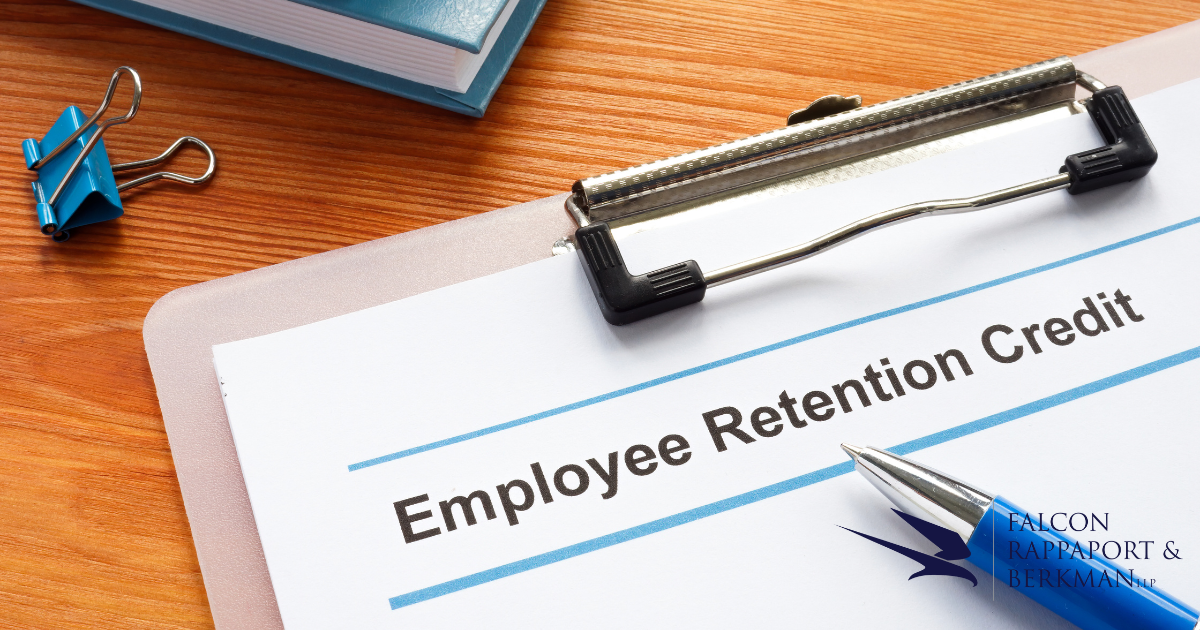Employee Retention Credit Alert: Navigating the IRS’s New Withdrawal Process
By: Matthew E. Foreman, Esq., LL.M. and Davis Rosser
The Employee Retention Tax Credit (“ERC”) is a refundable tax credit for businesses that continued paying employees during the COVID-19 pandemic while their business operations were suspended due to a government order.[1] While beneficial to many, the IRS noted that ERC Mills, looking to take advantage of well-meaning business and organizations, caused many aggressive if not incorrect claims to be filed, causing many businesses to have second thoughts about their claims.[2] Amid concerns about these scammers, the IRS announced on October 19, 2023 that taxpayers who have yet to receive their ERC refunds may be able to withdrawal their claims, discussed in further detail below.[3]
Eligibility Requirements
Employers may utilize the new withdrawal process so long as they meet all the following conditions:
- Employer made the claim on an adjusted employment return (Forms 941-X, 943-X, 944-X, CT-1X).
- Employer filed the adjusted return only to claim the ERC and made no other adjustments.
- Employer wants to withdraw the entire amount of their ERC claim.
- The IRS has not paid the claim, or if the IRS has paid the claim, the refund check has not been cashed or deposited.
Employers that willfully filed fraudulent ERC claims, however, are unable to avoid potential criminal investigation and prosecution even if they utilize the new withdrawal process.[4]
Withdrawal Process Mechanics
Even if an employer meets the eligibility requirements above, the ERC withdrawal process differs for employers who:
(a) filed their claim through a professional payroll company;
(b) have neither received nor been notified their claim is under audit;
(c) haven’t received a refund and have been notified their claim is under audit; or
(d) received a refund check but haven’t cashed or deposited.[5]
We recommend discussing your circumstances with a trusted tax professional before submitting an ERC withdrawal request. If you would like to discuss circumstances surrounding an ERC claim, please contact our Employee Retention Credit (ERC) Audit Defense Task Force at erc@frblaw.com.
Next month, join FRB Taxation attorneys for a series of webinars on ERC defense and developments from the IRS. Register for November 1st webinar here: https://frblaw.zoom.us/webinar/register/1516978397157/WN_MqAWndQdSsCubA4zWjNaHw
For further assistance navigating these changes or any other tax-related matters, contact our Taxation Group or submit the form below for a free consultation.
DISCLAIMER: This summary is not legal advice and does not create any attorney-client relationship. This summary does not provide a definitive legal opinion for any factual situation. Before the firm can provide legal advice or opinion to any person or entity, the specific facts at issue must be reviewed by the firm. Before an attorney-client relationship is formed, the firm must have a signed engagement letter with a client setting forth the Firm’s scope and terms of representation. The information contained herein is based upon the law at the time of publication.
[1] IR-2023-193 (accessible at https://www.irs.gov/newsroom/irs-announces-withdrawal-process-for-employee-retention-credit-claims-special-initiative-aimed-at-helping-businesses-concerned-about-an-ineligible-claim-amid-aggressive-marketing-scams#:~:text=Employers%20can%20use%20the%20ERC,amount%20of%20their%20ERC%20claim.).
[2] Id.
[3] IR-2023-193; see also FS-2023-24 (accessible at https://www.irs.gov/newsroom/help-for-businesses-steps-for-withdrawing-an-employee-retention-credit-claim.).
[4] FS-2023-24.
[1] Id.

